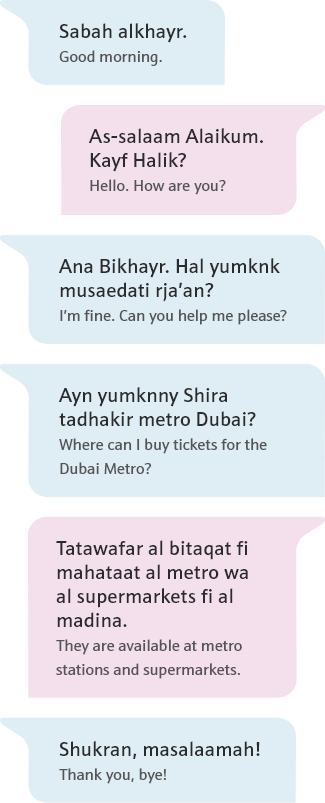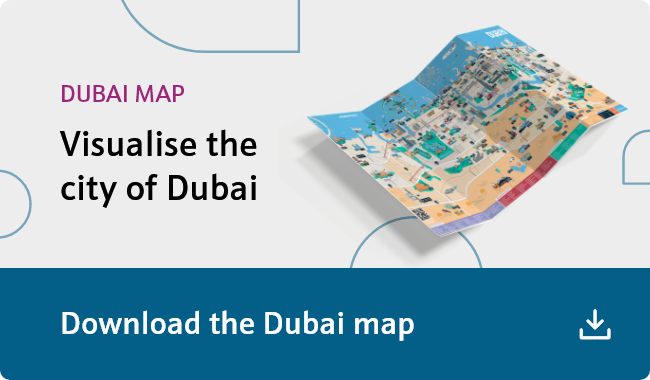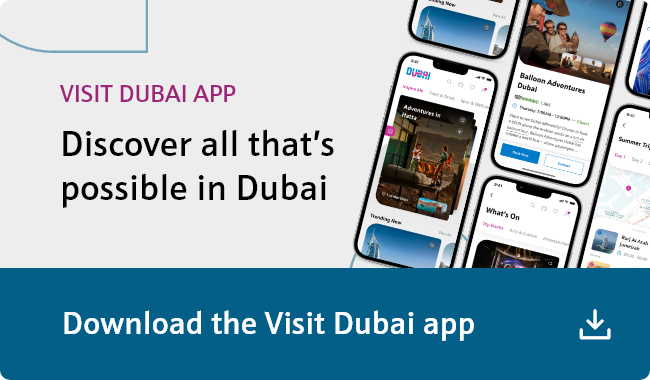An essential guide to Dubai
Here's some basic info to help ensure your visit goes smoothly.

Visas
Citizens of 50+ countries are eligible for visa on arrival, while GCC nationals enjoy visa-free entry to the UAE.
Transit visas (48 to 96 hours) are also available to all passport holders.
Stay connected
Electricity
Power supply is 220/240 volts. Sockets are
compatible with UK-standard three-pin plugs.
For US equipment, use a 220V to 110V
transformer.
Phones and Wi-Fi
The country code for the UAE is +971.
Tourists get a free prepaid sim card from
telecom operator du at the airport, while free
Wi-Fi is widely available across the city – even
on the beach.

Health
If you are travelling with prescribed medication, bring your doctor’s note with you. The Rashid, Latifa and Dubai Hospitals offer free emergency services.

Weather
Enjoy year-round sunshine in Dubai. Average temperatures are around 23°C in winter and 41°C in summer.
Let’s learn some Arabic
English is widely spoken in Dubai, but it’s polite to try a few words in Arabic, the official language of the UAE. You’ll probably see 'Ahlan wa sahlan fi Dubai' (Welcome to Dubai) when you first arrive, but why not try some basic conversation.
Getting around Dubai
There are so many ways to see Dubai - whether by road, rail or even water. Pick the method of transport that best suits your needs.

Dubai Metro
With stations at key landmarks, the Dubai Metro presents an easy and efficient way to explore the city.

Tram
Servicing key areas in New Dubai, the Dubai Tram links the Dubai Metro and the Palm Jumeirah monorail.

Bus
The public bus network covers most of the city, with several routes linking to metro stations and other emirates.

Taxi
Dubai taxis are available 24/7 across the city. There are also special needs and ladies-only taxis.

Dubai ferry & water taxi
With world-class marine solutions and modern facilities, explore Dubai's top sights from the water.

nol card
Buy a nol e-ticketing public transport card from your nearest metro station, supermarket or convenience store.





